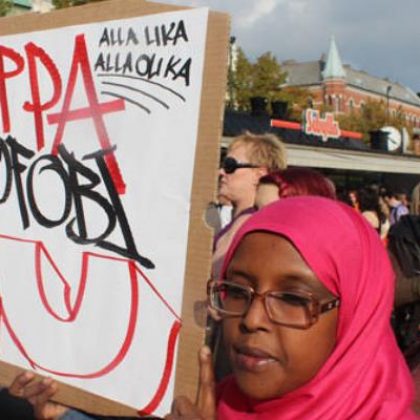“50/50” Gender Equality and the Persistence of Bridewealth in Democratic South Africa
Michael Yarbrough is Assistant Professor, Law and Society Major, Department of Political Science at John Jay College of Criminal Justice (CUNY). His article in Law & Social Inquiry, “Very Long Engagements: The Persistent Authority of Bridewealth in a Post-Apartheid South African Community” won the 2019 Article Prize from the Law & Society Association.
Are tradition and equality enemies? In 1996, a hopeful South African constitution answered this question squarely: no.
This landmark constitution marked the end of formal apartheid with pace-setting commitments to gender and sexual equality, while also protecting cultural expression and recognizing African customary law. Soon after, the Recognition of Customary Marriages Act (RCMA) of 1998 began to develop these overlapping mandates, extending full state recognition to marriages concluded through African legal customs.
Yet this new marriage law was enacted amid a four-decade collapse in actual marriage rates among Black South Africans. Deindustrialization in the 1970s undermined stable employment, triggering the decline, and the neoliberal policies that accompanied South Africa’s re-entry to the world economy in the 1990s intensified it.
For many years, I have researched how Black South Africans understand marriage in this context of political, legal, economic, and demographic transformation. Among the clearest and most important findings is what has not changed: The core practice for forming socially recognized marriages remains a custom known in many southern African languages as lobola.
A negotiated and lengthy process, lobola centers on a large gift of literal or symbolic cattle from the groom to the bride’s family. The practice has been central to marriage formation across centuries of colonial and apartheid rule, and it remains so today.
At the same time, many people I interviewed saw lobola as the key reason that an entire generation of young adults can’t marry. Men can’t pay lobola because they can’t find jobs, and so, I was repeatedly told, “marriage is finished.”
So why, in the face of this collapse, are lobola customs so stable? Its status as a deeply valued tradition obviously plays a major role, but still: why aren’t lobola customs challenged more by the young people whose marriages they delay, often forever? Especially when the political and legal transition would seem to open up space for change?
In response to these questions, my recent article in Law & Social Inquiry argues that lobola customs are in fact not as stable as they seem. I focus especially on young women, who I argue see lobola in multiple ways that help them develop new ways of doing it. For these women, lobola does carry its “traditional” meanings, which frame it primarily as uniting two extended-family lines. But they also see lobola as an expression of their intended husband’s love. Some even see it as a tool for achieving “50/50” gender equality in marriage, by using it to maneuver into an equal marriage—or out of an unequal one. They put these meanings into practice by, for example, “whispering” with their mothers backstage to help influence fathers’ requests in lobola negotiations. Or, more commonly, they watch their intended husband while a lengthy lobola process wears on, letting those who prove abusive or disrespectful drift away when they cannot pay.
These strategies do not significantly improve most women’s lot. Usually, they just help them keep a bad marriage at arm’s length. But they nonetheless subtly remake lobola as a field where the spouses’ individual happiness matters as much as the families’ reproduction. They infuse egalitarian and individualist values into the time-honored, largely communal custom. In this way, it is these young Black South African women who make the constitution’s promised fusion of tradition and equality a reality. They highlight the power of a constitution to transform a society not just by legislating new laws, but by inspiring new forms of everyday action.






